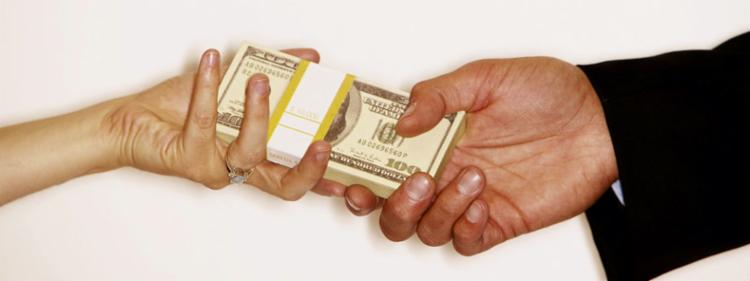Pros & Cons of Buying a Car with Cash: What to Know

You have found the perfect vehicle that fits your needs and budget, and now you're wondering how to pay for it. Buying a car with cash has its benefits and its drawbacks. Before you spend a sizable chunk of your savings, find out if buying a car with cash is right for you. Also, make sure you're covered with an affordable car insurance policy.
1. Is It Worth Dipping into Savings To Buy a Car with Cash?
If you can answer yes to the question, “Can I buy a car with cash?” make sure you’re not thinking of dipping into hard-earned savings or your retirement account. Taking even a small loan from your retirement funds could leave you in a bind when you really need that money. Whether or not you should buy a car with cash is a trickier question to answer.
If you are using regular savings to buy a car with cash, make sure you leave yourself enough to weather unforeseen events. In better economic times, financial advisors recommend that people have at least three months' worth of emergency saving to pay bills (mortgage/rent, utilities, insurance, food, gas, etc.) in the case of job loss.
These days, financial experts with Edward Jones recommend that you have at least nine months in savings, as extended periods of unemployment are more common. You do not want to drain your emergency funds when deciding how to buy a car with cash.
Can you buy a car with cash? If you can comfortably afford to draw from your savings or emergency funds for an extended period, then you probably can. Otherwise, it may not be a wise decision.
Pros of buying with cash:
- You don't have a monthly payment.
- You pay no interest.
Cons of buying with cash:
- You decrease your savings for unforeseen events.
- You lose any investment opportunity for the cash.
2. Consider Your Interest Rates
Is it better to buy a car with cash? It could depend on current interest rates. If you have stashed enough away in savings, the next thing to consider about buying a vehicle with cash is if that money could be put to better use elsewhere. For example, if your credit is good enough to earn you a low interest rate on a car loan, you may do better to get a loan for the car and to invest your cash in a financial product with higher interest rates.
Buyers with the best credit scores can usually secure an auto loan for around 5 percent under current market conditions, according to a recent poll done by Edmunds. According to that survey, a buyer with credit scores in Tier 3 (670-699) for a 36 month auto loan see rates of 4.83% from a bank, and 4.09% from a credit union, on average.
If the car is selling for $15,000, you may be better off investing that cash for a 6 percent or better return than you would by saving a few thousand dollars on interest payments. Buyers with low to poor credit scores may see interest rates as high as 18 percent, in which case the savings on interest would be substantial.
Pros of a low interest rate:
- You can leave your savings alone.
- You can invest that money elsewhere.
Cons of a higher interest rate:
- You will pay more for the car over the life of the loan.
- Your monthly payments will be higher.
3. Consider Your Credit
Another aspect to take into account when deciding if buying a car with cash is right for you is your credit. Buyers with few credit lines or a short credit history may want to borrow rather than pay cash as a way to establish credit. Building a healthy credit history is a great way to save well beyond the life of the car; you'll be able to secure lower interest rates on future purchases.
If you have a long and blemish-free credit history, buying a car with cash makes more sense. However, many new car dealers offer interest-free car loans for the buyers with the best credit scores. You may want to take advantage of this type of borrowing if you qualify. Freeing up that cash for other daily expenses may outweigh your desire to be debt-free.
If sending that monthly car payment makes you cringe each time you open the mailbox, the psychological benefits of paying with cash may trump any interest you may earn by investing that money.
Pros of using credit:
- By making payments on time, you build good credit.
- You may be able to take advantage of zero interest loans from the manufacturer.
Cons of using credit:
- You have to send those monthly payments.
- Your credit may already be great, and you do not want to take on more debt.
4. Consider Your Car
If purchasing a pre-owned car with cash is substantially cheaper than purchasing a brand new car with financing, then purchasing the pre-owned car may be a better option for you. However, you should factor in the cost to maintain an older vehicle. While purchasing a used car allows someone else to take the depreciation hit, the maintenance bills can add up quickly.
If you leave yourself fewer reserves by purchasing a used vehicle with cash, you may find it difficult to afford the repairs needed for an older car. On the other hand, financing a used car is often at higher interest rates than buying a new vehicle with a car loan. It's important to calculate the differences to find out what your savings would be should you buy your car with cash.
Pros of buying new:
- New cars and trucks have fewer breakdowns and repairs.
- You may be eligible for a zero-interest loan from the manufacturer.
- New cars smell great.
Cons of buying new:
- Your car depreciates quickly.
- If you finance the purchase, you may have to carry full insurance coverage, as mandated by your lender.
5. Buying a Car with Cash
If you have taken the above into consideration and have decided to purchase your car with cash, you may be wondering the best way to buy a car with cash. Few people want to show up at the dealership with a briefcase full of cash. The following is what Paul Johnson with Ford says you need to know when buying a car with cash:
- Do your homework: Is this the make, model and year you really want?
- Decide whether you want to make your cash purchase with a dealer or a private seller. Private sellers often only accept cash.
- Do your research: What is the Kelley Blue Book value of the car or truck you have chosen? This will contain both the dealer's new car price and what a private seller should be asking for their pre-owned vehicle.
- Although Johnson is hesitant to admit it, you should not mention to the dealer that you will be paying cash until after you lock in the purchase price. Sales representatives make a commission on car loans. If they know they won't be making that money, they may "neglect" to inform you of discounts for which you may be eligible.
After you purchase the car, auto insurance will come into play. You'll need to carry a certain amount of coverage to legally drive in your state. When it comes time to find coverage, an independent agent is the best way to source low rates and also get personalized service. An independent insurance agent can help you get the coverage you need quickly and easily.
